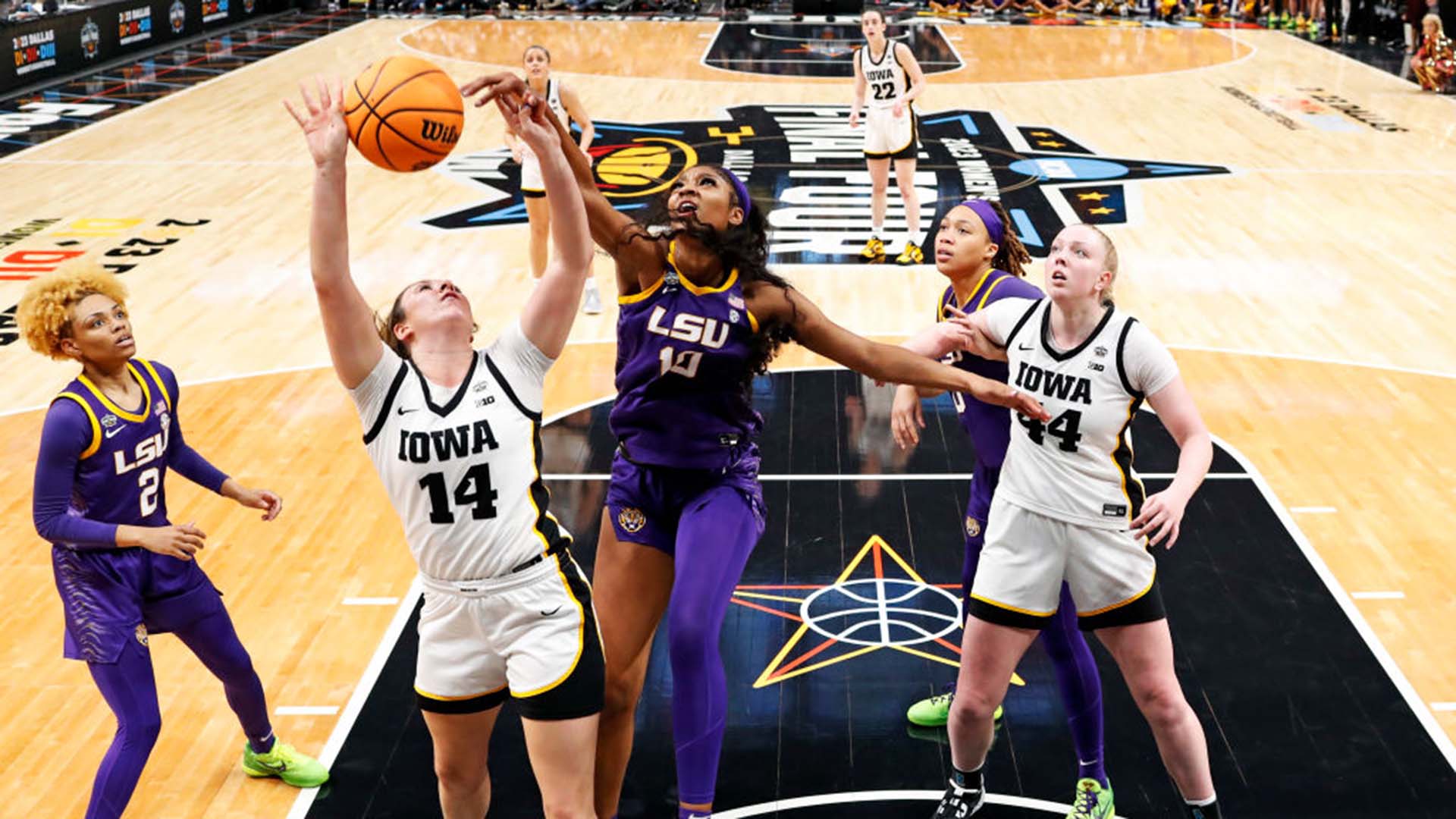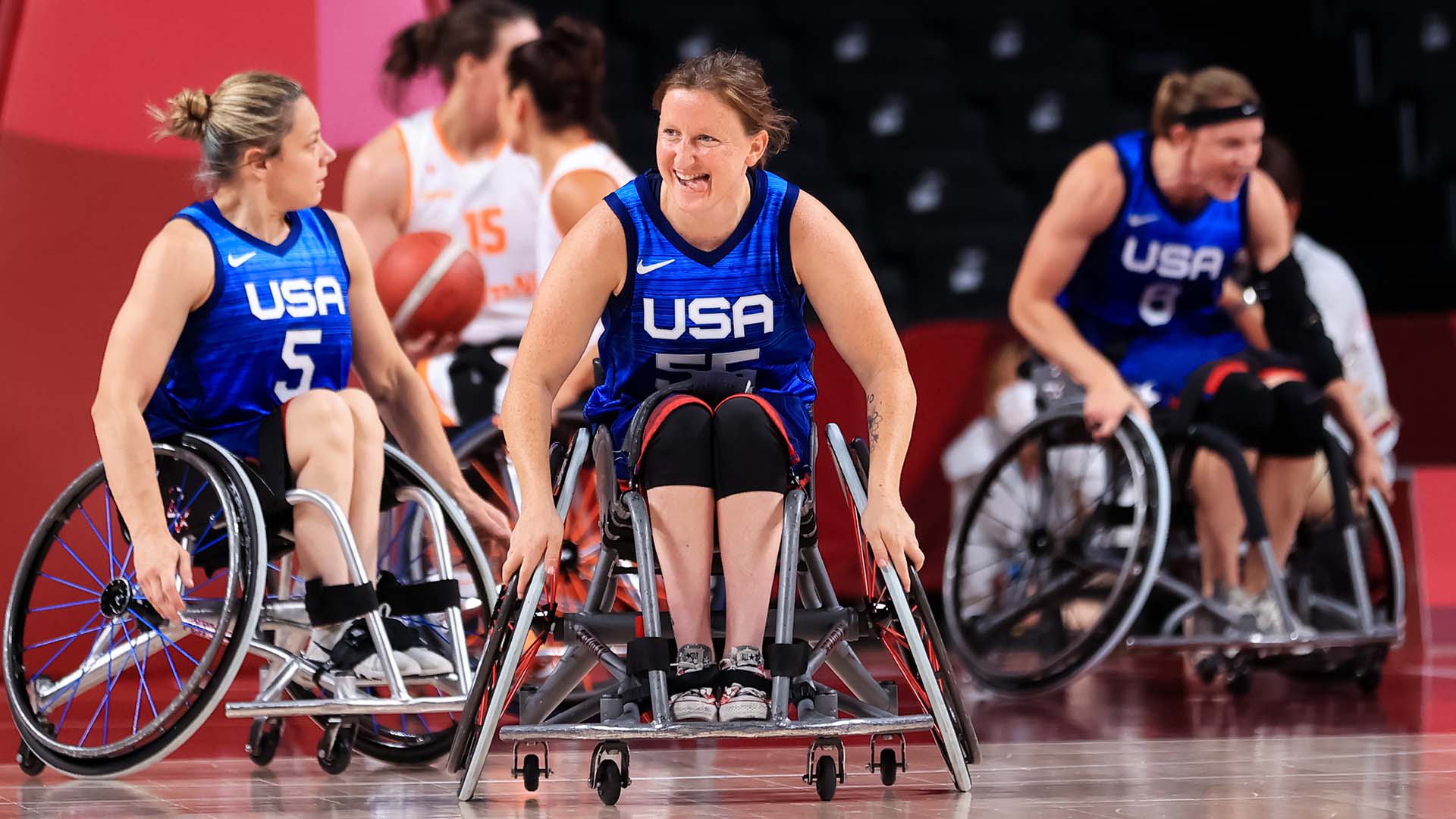Why employers love college athletes
Good news for college athletes. If your sporting heroics don’t work out, you’ll probably not struggle to find a good job.

If someone’s gifted at cooking, you don’t automatically expect this person to be good at sailing a boat, do you? Similarly, if someone’s a maestro on the piano, it doesn’t necessarily follow that he or she will be a natural with pets.
And yet, if a student is a good soccer player, baseball slugger, volleyball specialist, golfer, swimmer, runner – any college sport, really – then many companies automatically assume this athlete will also make an ideal employee.
Why does this happen? What is it about the way a young woman wields a hockey stick that convinces recruiters she’ll also be a whiz in their hi-tech office environment?
The answer, of course, lies not in the specifics of any individual sport but in the larger cultural environment that college athletes come from.
Are you looking for somebody tough, who’ll get back up when knocked down? Want someone with thick skin who’s accustomed to getting blistering feedback? Need savvy team players, who are well-organized and intuitively understand their roles? Hey, you need an athlete!
Complete package
“Employers just love college athletes,” says April Schofield, marketing lecturer at Metropolitan State University of Denver. “And that’s because sports and good business practice involve a lot of similar qualities. There’s the competitive nature, ability to multitask, the team mentality and comfort with taking orders. And really, which employer isn’t looking for those assets?”
There’s even a magic word that sums up the college athlete’s attractiveness to employers (and which was independently mentioned twice by both interviewees for this story): “coachability.”

“The ‘coachability’ aspect is really important,” Schofield says. “Even as a parent watching your kids at sports practice, you’ll see that some people just can’t handle being told what they’re not good at. But with student athletes, employers already know they can both take criticism and use it constructively.”
Coaching counts
For living proof of this theory, look no further than Gerald Mota. The former varsity soccer team player, who graduated from MSU Denver in 2011, saw his sporting achievements jump off the page once he started showing his resume to potential employers. He credits sport with helping to secure a great job with Northwestern Mutual following his graduation.
Now an established financial director, Mota can see with hindsight why his athletic pedigree was such a draw. “Lots of corporations like how coachable we are, it’s as simple as that” he says. “They know they will be able to mold and teach us the ways of their business, especially when we’re still young and relatively unformed.”

But can it really be as simple as that? The kid who happens to be good at running or throwing a ball equals a surefire employee bet? Actually, maybe so.
“I honestly think that many of the stereotypes do apply,” Mota says. “All the former college athletes I know really do have a high work ethic and bounce back easily from disappointment, and all those things. It’s kind of drilled into us.”
But perhaps even more important, in Mota’s case anyway, was the sense of competitive drive that soccer instilled in him: “My employers saw that I wasn’t satisfied to be complacent and just stay in the same position. I was always striving to be better than I was the day before and openly reaching for new goals, and I think they responded to that.”
Big reputation
Of course, the sporting-business-star model probably works better for some careers (sales and finance being obvious examples) than others. If you’re considering a professional path that values individuality and a strongly creative – even slightly maverick – streak (hello, graphic designers and architects), then maybe 13 years of sports drills with a coach barking orders at you won’t be the best preparation.
Still, it remains the case that college athletes have a deservedly high reputation in the business community. And here’s another reason why they perform so well – they just want to belong.

Schofield explains: “Many college players have been regularly playing their sport since they were 5 years old, so that transition at graduation from student and athlete to just employee can be quite painful. They have essentially lost a part of their identity, so throwing themselves into their new role is a way of bouncing back.”
And the supreme irony of the college athlete’s elevated status in the workplace? The athletes themselves are usually the last to know about it. “When I first got involved in college sports, I was just a young, immature kid who wanted to play professional soccer,” Mota recalls. “I had no idea that kicking a ball around a field might impact my later life in such a beneficial way.”
Field of dreams
But that’s a lesson he’s now learned. These days, when hiring people, Mota always looks out for a sporting element on their resumes. “Again, it all comes back to that ‘coachability’ aspect,” he says. “You want someone who will be receptive and open to feedback, so you can help them become more efficient.”
And what about today’s college athletes: Have they evolved into a canny group of career-minded go-getters with an eye already open to future career opportunities? Not a bit. Apparently, they may be as unaware about the value of their athletic endeavors as Mota was when he graduated.
“Even now, so many students hide their sporting activity on their resumes, thinking it might seem frivolous,” Schofield says. “And I say, ‘Are you crazy? Employers will be really excited to see this.’”
Her message to students is blunt: “Don’t be afraid to advertise your college sporting activity and spell out exactly how you’ve learned from it. It could be your ticket to a good job.”







